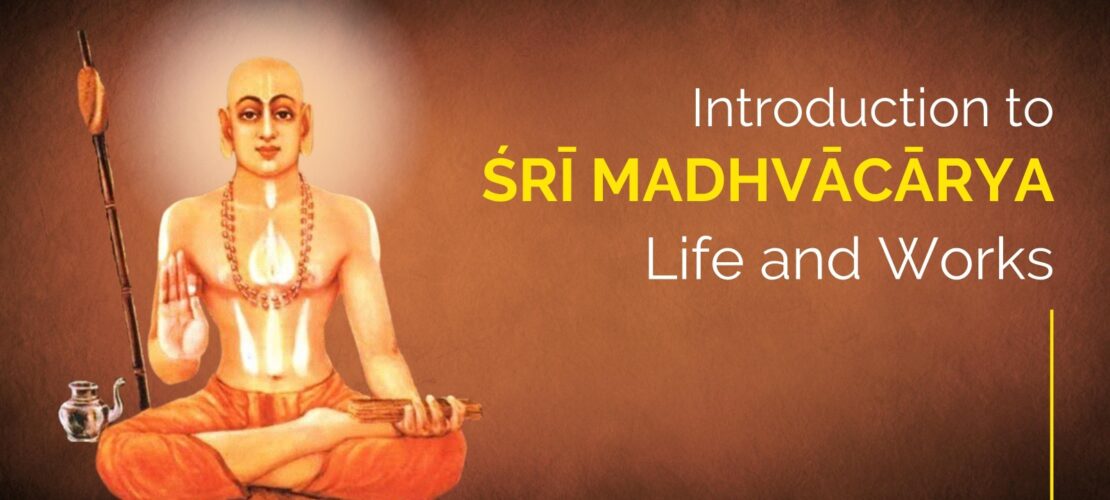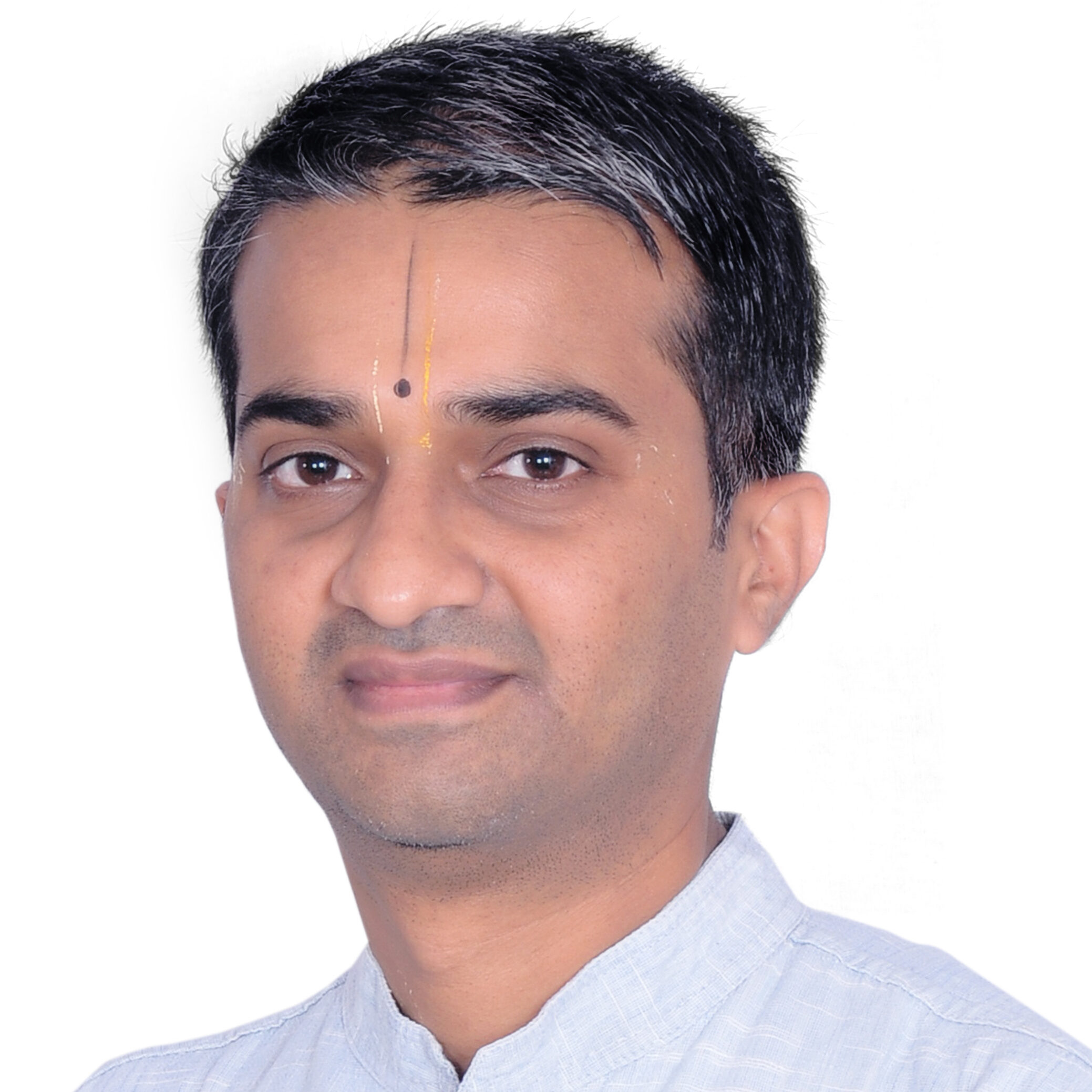
Introduction to Śrī Madhvācārya Life and Works
We are delighted to announce another edition of our humble offering under “Enlightened Masters” series.
This Indica Course provides an introductory overview of the life and works of Śrī Madhvācārya, the founder of Dvaita School of Vedānta.
It covers significant events in his life, narrates contexts for his works, and presents an outline of the fundamental principles of his teachings.
Faculty
13 June 2023 - 22 August 2023
6:30 PM -8:00 PM IST
Every Tuesday (except 15th August 2023)
Introduction
Śrī Madhvācārya, the founder of Dvaita School of Vedānta, is one of the three popular Ācāryas who established their own Schools of Vedānta; Sri Śaṅkarācārya, the founder of Advaita School, and Sri Rāmāmujācārya the founder of Viśiṣṭādvaita, being the other two.
Born in coastal Karnataka, in the 44th century Kali era (13th century CE), he became an ascetic at a very early age with a life mission to uncover the purport of Vedantic texts with due emphasis to our experiential knowledge and rigorous logic. His teaching of Vedantic realism is a highly useful framework to understand the meaning of life and its purpose in a convincing way.
His works collectively called Sarvamūla Granthas are unique in many ways; notably for their wide range and for reconciling the entire corpus of Vedic texts. His life-story provides glimpses of his divine personality that add an additional layer of legitimacy to his teachings.
This course is a basic introduction to his life and works.
Course Objectives
- Narrate the important events in the life of Śrī Madhvācārya.
- Understand how some those events led to the compositions of different works.
- Summarise his works and identify their primary teachings.
Course Outcomes
- Appreciate Śrī Madhvācārya’s approach of reconciling the entire gamut of Hindu texts.
- Understand Śrī Madhvācārya’s insights on what it means to lead a Dharmic life.
Course Syllabus
- Session 1: Introduction
- Session 2: Overview of nine popular tenets and 37 works of Madhva
- Session 3: Geography of Pajaka and Udupi, Vasudeva (Madhva) ‘s birth and early childhood
- Session 4: Vasudeva’s journey towards Sannyasa. Early events
- Session 5: Madhva’s theory on reconciling experience, logic and texts
- Session 6 : Dakṣiṇa Bhārata Yātrā. Madhva’s theory on multi-layered meanings of words
- Session 7: Uttara Bhārata Yātrā; Madhva’s composition of Bhāṣyas, Yogic powers and some short stories
- Session 8: Madhva’s magnum opus – an analytical summary of Mahābhārata and Rāmāyaṇa
- Session 9 : Madhva’s unique teachings – position of Devatās, meaning of Bhakti and Dharma, understanding Mahāvākyas
- Session 10: Madhva’s disciples, disappearance, legacy and Haridāsa Bhakti movement
Reading List
- Prabhanjacharya, V. Life and Works of Śrī Madhvācārya. Sri Vyasamadhwa Samshodhana Pratishthana. 2004.
- Sharma, BNK. History of Dvaita School of Vedanta and Its Literature: From the Earliest Beginnings to Your Own Times. Motilal Banarsidass, 2008.
- Sharma, BNK. Philosophy of Sri Madhavacarya. Motilal Banarsidass, 2014.
- Nandakumar, Prema. Sri Madhva: The Hero as Acarya, Chinmaya International Foundation. 2021
- Iyer. G.V. Madhavacarya [Film]. Ananthalakshmi Films. 1986.
Course includes
- Live sessions
- Access to class recordings (for asynchronous participation)
- Certificate of Completion
*Please note that if the number of registrations is less than 15, this Indica Course may not be offered. Learners will be notified about this decision, and their money will be refunded.
Watch this video for a detailed course overview

